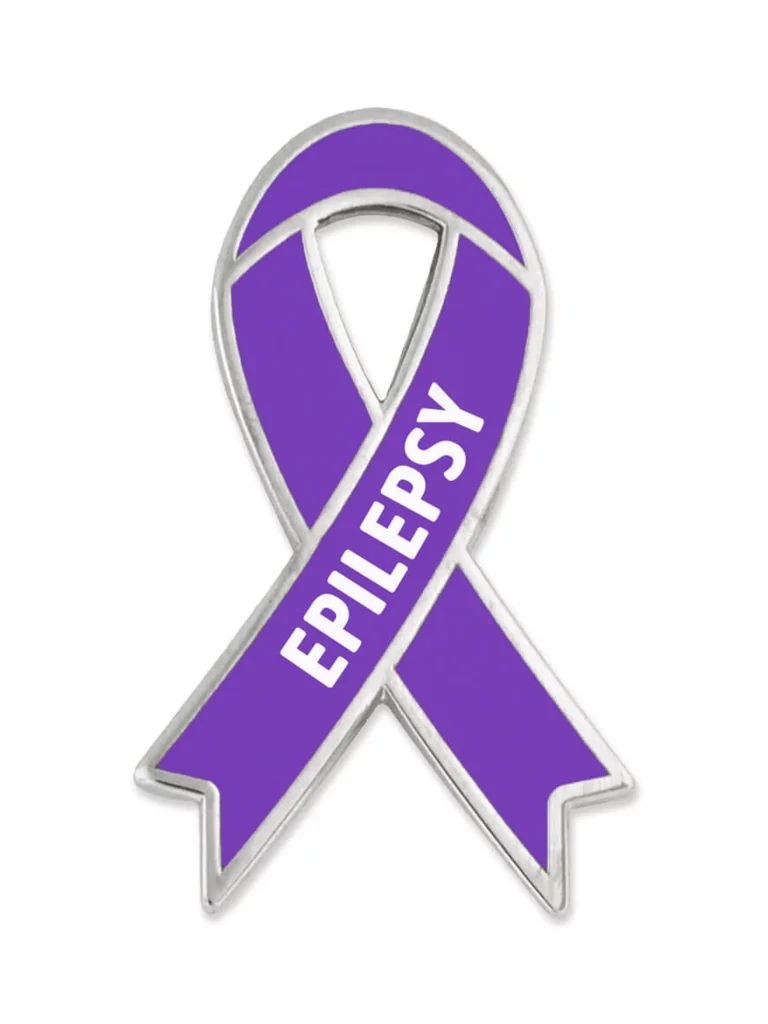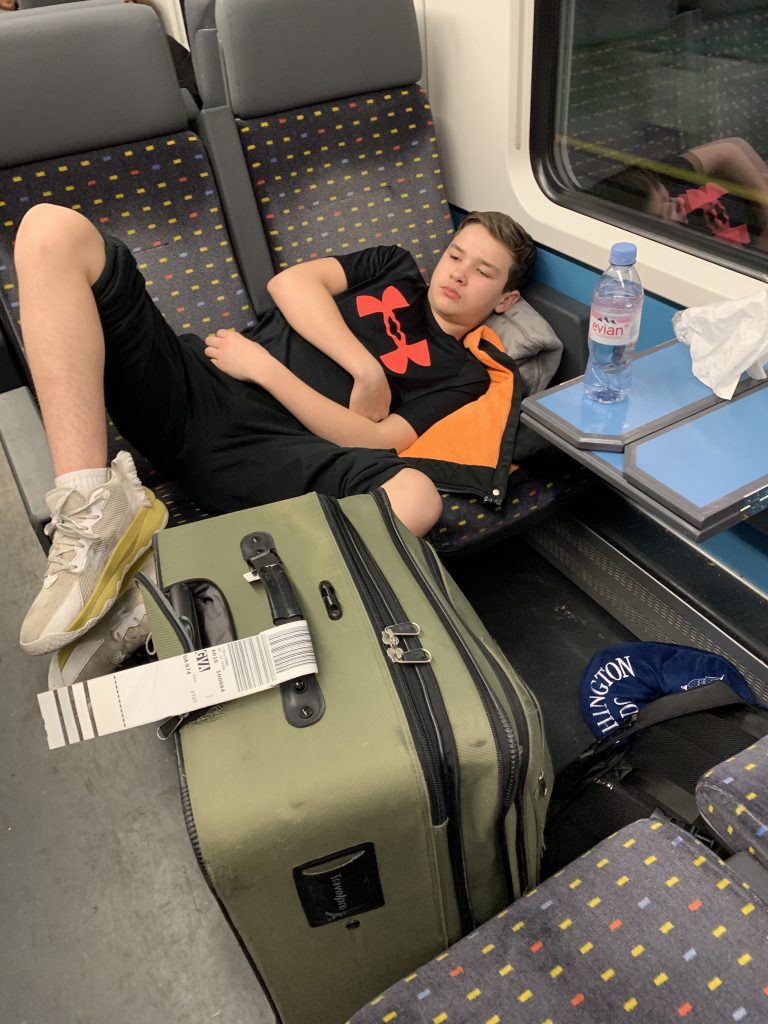Families who have children living with epilepsy have additional complexities to consider if they want to rocket around.

Concerns that your child may have a seizure when you’re on the road can be front and center when you think about going on an adventure. Anxiety over the possibility can even cause a family to choose not to venture outside their circle of daily living for a long time, even years.
About Epilepsy
Epilepsy in simplest terms means two or more seizures of unknown causes. All our brain and body functions are controlled by electrical signals being sent to and from our brain and nerves, and seizures occur because those electrical signals misfire in the brain.
There are two different major groupings of seizures – partial seizures, which impact part of the brain, and generalized seizures, which impact the whole brain. However there are various types of partial seizures identified by which part(s) of the brain are impacted by electrical impulses, and that present in different ways; some don’t look anything like what people may typically think of as seizures.
Seizures can be very dangerous, especially if they last too long, or cause the person seizing to inadvertently hurt themselves by falling, not being able to breathe, or something else.
Autism, ADHD, anxiety, and various other psychiatric, cognitive, and medical conditions carry a higher incidence of epilepsy than the general population. The incidence of people with autism and epilepsy is high – according to some estimates, as many as 50 percent are living with both.
Epilepsy, also referred to as seizure disorder, is a disability in legal terms, but there is no clear-cut answer as to whether on its own it is a type of neurodivergence – some people say it is, while others say it’s not.
Considerations and Challenges
Personally, epilepsy impacted our family’s adventure for years.
One of our kiddos had their first generalized seizure at 18 months, but looking back, he probably had partial seizures prior to that. The first generalized seizure was a doozy – 20 minutes into it, our child was overdosed by paramedics on valium then intubated and taken by a medivac to the closest hospital with a pediatric intensive care unit. Thanks to God and modern medicine, they were able to breathe again on their own eight hours later and discharged from the hospital several days after that.
We had hoped our child’s seizures were febrile, or caused by fevers since febrile seizures can be controlled by preventing whatever is causing the fevers. But after their tonsils – which were harboring strep – were removed, the generalized seizures yielded to partial seizures, and it became clear that they were living with epilepsy.
Ultimately medicine was able to stop the seizures and the epilepsy went into remission – and it’s worth noting that many people with epilepsy do not have this level of success from anti-seizure medication – but before the seizures were under control, we experienced one on the road, and it caused us to pause our adventures.
We had rescue medicine (valium) in our luggage and were able to stop the seizure, call an ambulance, get our kiddo checked out at a local hospital, and remain seizure free for the rest of the trip. But it firmly planted the question in our minds – what if all those events hadn’t all come together?
So, travel became a luxury from our past, and, hopefully, at some point, our future. As the years went by, and the medication kept the seizures at bay, we gradually dipped our toes back in the adventure pool, and today, more than 11 years since our last seizure, we travel a lot and love it.

Through researching neurodiversity and travel, I’ve recently come across various articles and blog sites for people who do what we didn’t feel comfortable doing – continuing to travel despite their or their child’s epilepsy. https://epilepsytraveller.home.blog/
One example that truly amazes me is a woman named Lauren who lives with epilepsy and has traveled on her own from her home in Europe to more than 25 countries. This passage from a blog in which she writes about her first solo trip off the continent in which she lives chokes me up:
“Booking everything by myself made nervous though and in the days leading up to my departure, I wondered “will I be able to do this?”. When the big day came, I was carrying my luggage, and a bag of mixed emotions, through check-in and security. Knowing that it was just me on this journey, without my friend, made me nervous. But I was able to get through the standard procedures because I had travelled before and once I was on the plane I was able to relax and fall asleep. When I arrived in New York I took a taxi to my hotel. It was the evening, so wasn’t able to see much of the city, but was feeling excited….The next morning, after breakfast, I left the hotel and looked up at the skyscrapers. To see them in daylight made me get a proper view of the city. “I’ve done it!”, I thought to myself. “I’ve made it to America!”. My lifetime dream had come true.”
I manage a Facebook group called Parents of Kids with Seizures, which has more than 4,000 parent members from around the world. Many of their children have regular or daily seizures and our community is a caring place that offers guidance on seizure management and coping. For so many in this group, getting control of the epilepsy that often seems to control their children’s and their lives is priority number one. Traveling is a nice-to-do, someday.
There is however interest in helping our kids experience joy and adventure can make that happen. One mother posted: My [daughter] started having seizures [three years ago]. We managed to go to Disney World last year and she had a wonderful time, but the heat limited us. I try to…give her a joyful life.”
For those who have epilepsy in their family, but find joy in travel, and think their children would too, here are tips from experts who are adventuring while living with epilepsy…

- Share and talk through your travel and seizure management plans with your healthcare provider, and ask them for a copy of your medical records and duplicate prescriptions in case you need a replacement while you’re away.
- Don’t forget your meds – daily and rescue, keep them with you at all times, and make sure to stay on your medication schedule when traveling across time zones. Also, bring acetaminophen and ibuprofen to control fevers (a possible seizure trigger) if they occur. Useful resource: Managing Medicines While Traveling
- Wear a medical ID bracelet and talk with those around you (tour providers, flight attendants, etc.) about what to do if you have a seizure.
- Know the triggers, signs, and patterns of epilepsy for your loved one: Various tools can help with tracking: Toolbox offers a seizure calendar, or use My Seizure Diary.
- Travel at the best time of day to prevent seizures: e.g., some people have seizures at night, so day travel would be advisable. Others have sleep-deprived seizures, and taking steps to better ensure good sleep, taking it slow on the way to your destination and in the early days of your trip, and being the passenger rather than the driver can be important.
- Maintain a healthy diet and get plenty of fluids throughout your trip.
- Manage the stress of your family, and particularly your loved one with epilepsy – stress is a seizure trigger for many people with epilepsy. Managing stress, sleep, and healthy eating habits can reduce the likelihood that you’ll experience other illnesses while traveling.
- Pay attention to, and avoid, external factors that could trigger a seizure, such as bright light and other stimuli.
- Request an aisle seat for your loved one with epilepsy on the plane or train in case medical personnel need to provide care to them during a seizure.
- Check your health insurance policy for care you may need to receive while on the road and consider getting travel insurance.
- Consider where you’re going and know where local healthcare facilities are located and how to contact emergency services.
- Pack for the just-in-case situations – layers to guard against getting overheated, protective underwear, and a change of clothing in case of a loss of control of urine during seizures.
We’d love to know…if someone in your family is living with epilepsy, how and where do you adventure?
Here are some other useful resources for those living with epilepsy and who have an interest in rocketing around:

